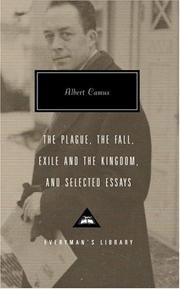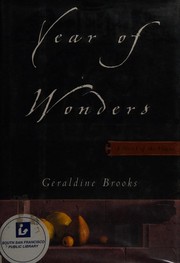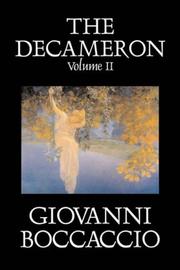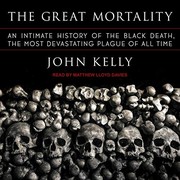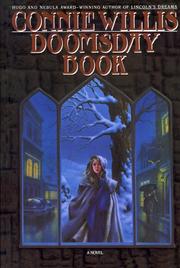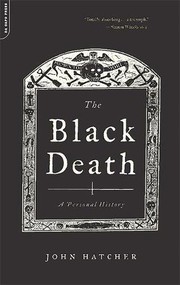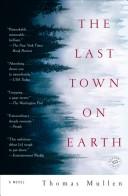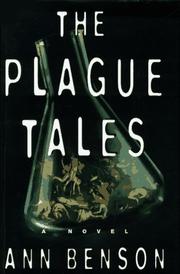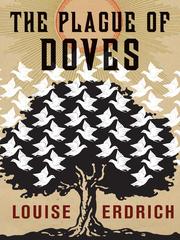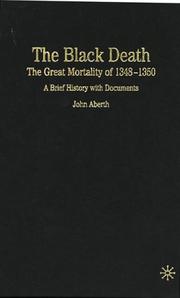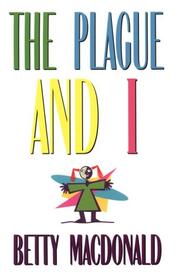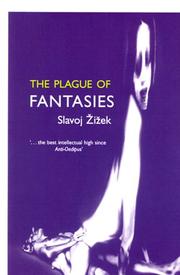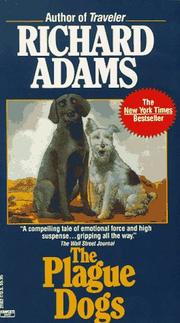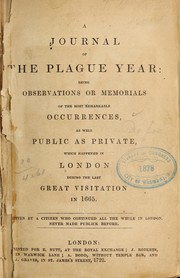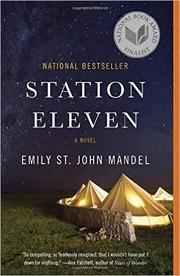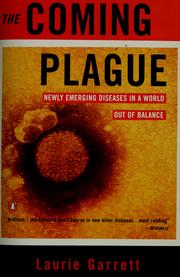Are you fascinated by the history of pandemics and the devastating impact of diseases on society? If so, you’ll be captivated by these 20 best books about plague. From historical accounts of the Black Death to modern examinations of the impact of pandemics on global health, these books offer a comprehensive look at the history and consequences of infectious diseases. Whether you’re a history buff, a science enthusiast, or simply looking for a compelling read, there’s a book on plague that will pique your interest. Let’s dive into the world of plague books and explore the gripping tales of survival, resilience, and the human experience in the face of devastating epidemics.
Contents
- 1 20 Best Plague Books
- 2 The Plague
- 3 Year of Wonders
- 4 The Decameron
- 5 The Great Mortality: An Intimate History of the Black Death
- 6 Doomsday Book
- 7 The Black Death: A Personal History
- 8 The Last Town on Earth
- 9 The Plague Tales
- 10 The Black Death: Natural and Human Disaster in Medieval Europe
- 11 The Plague of Doves
- 12 The Black Death: The Great Mortality of 1348-1350: A Brief History with Documents
- 13 The Plague and I
- 14 The Plague of Fantasies
- 15 The Plague Dogs
- 16 The Ghost Map: The Story of London’s Most Terrifying Epidemic
- 17 A Journal of the Plague Year
- 18 The Hot Zone: The Terrifying True Story of the Origins of the Ebola Virus
- 19 Station Eleven
- 20 The Coming Plague: Newly Emerging Diseases in a World Out of Balance
- 21 Pale Rider: The Spanish Flu of 1918 and How It Changed the World
- 22 Final Thoughts on Best Plague Books
- 23
20 Best Plague Books
The Plague
by Albert Camus
The Plague, written by Albert Camus, is a compelling and thought-provoking novel that explores the impact of a devastating epidemic on a small Algerian town. Set in the 1940s, the story unfolds as the town of Oran is suddenly struck by a mysterious and deadly disease, isolating its inhabitants from the outside world. The novel follows Dr. Bernard Rieux and a cast of diverse characters as they grapple with the physical and emotional toll of the plague, facing fear, despair, and moral dilemmas. As the town is engulfed by the plague, Camus skillfully examines the resilience and fortitude of the human spirit, as well as the complex nature of morality and existence in the face of adversity. The Plague is a poignant and timeless exploration of human suffering, resilience, and the search for meaning in the midst of chaos. This plague book offers a powerful reflection on the human condition and the enduring struggle against a relentless and unyielding foe.
Year of Wonders
by Geraldine Brooks
Year of Wonders by Geraldine Brooks is a captivating historical fiction novel that immerses readers in the harrowing experience of a small English village grappling with the devastating effects of the Black Death. Set in the 17th century, this gripping tale follows the courageous protagonist, Anna Frith, as she navigates the unfolding horrors of the plague that ravages her community. As fear and despair grip the village, Anna finds herself thrust into a role of unexpected resilience and strength, facing unimaginable challenges and heart-wrenching loss.
Brooks’ vivid and evocative prose brings to life the atmosphere of the era, capturing the desperation, grief, and ultimately, the resilience of the villagers as they confront the merciless onslaught of the epidemic. Year of Wonders is a poignant and powerful exploration of the human spirit in the face of unimaginable suffering, offering a poignant reminder of the enduring strength and resilience of the human heart. This is a must-read for anyone seeking a compelling and deeply affecting plague book.
The Decameron
by Giovanni Boccaccio
The Decameron by Giovanni Boccaccio is a masterpiece of Italian literature, written in the 14th century. This collection of 100 tales is set during the Black Death, a devastating pandemic that swept through Europe. The stories are told by a group of ten young people who have fled Florence to escape the plague, and they entertain each other with tales of love, wit, and adventure to pass the time.
Boccaccio’s work is a rich tapestry of human experience, filled with humor, romance, and tragedy. The stories offer a fascinating glimpse into the social and cultural life of medieval Italy, while also providing a compelling commentary on the human condition in the face of adversity.
Although it is set during a time of great suffering, The Decameron is ultimately a celebration of the power of storytelling to provide solace and joy in the midst of hardship. This timeless classic continues to captivate readers with its vivid characters and timeless themes.
The Great Mortality: An Intimate History of the Black Death
by John Kelly
The Great Mortality: An Intimate History of the Black Death by John Kelly is a compelling and in-depth book about plague that takes readers on a journey through one of the most devastating pandemics in human history. Kelly delves into the origins of the Black Death, its rapid spread across Europe and Asia, and the harrowing impact it had on society. Through meticulous research and vivid storytelling, the author provides a gripping account of the chaos, fear, and despair that engulfed communities as the plague ravaged populations.
With a keen focus on the human experience, Kelly paints a vivid picture of the individuals who lived through this catastrophic event, from peasants and merchants to physicians and rulers. The plague book also explores the societal, economic, and cultural repercussions of the Black Death, offering a comprehensive understanding of its profound and lasting effects on the world. The Great Mortality is a riveting and enlightening read that brings to life the tumultuous era of the Black Death and its enduring legacy.
Doomsday Book
by Connie Willis
Doomsday Book by Connie Willis is a gripping and haunting novel that combines time travel with a devastating outbreak of disease. Set in both the 14th and 21st centuries, the story follows a young historian named Kivrin who travels back in time to the Middle Ages, only to find herself trapped in the midst of the Black Death, a catastrophic event that decimated Europe’s population. As Kivrin struggles to survive in this treacherous and plague-ridden world, her colleagues in the future race against time to bring her back safely. This remarkable book delves into the harrowing realities of the plague, weaving a tale of resilience, sacrifice, and the enduring human spirit. Doomsday Book is a compelling and thought-provoking exploration of history, humanity, and the profound impact of infectious disease. With its richly detailed storytelling and powerful emotional resonance, this is a must-read for anyone interested in a riveting book about plague.
The Black Death: A Personal History
by John Hatcher
The Black Death: A Personal History by John Hatcher is a compelling book about the plague that swept through Europe in the 14th century. Hatcher takes a unique approach by focusing on the personal experiences of individuals who lived through this devastating epidemic. Through a combination of historical research and vivid storytelling, he brings to life the fear, suffering, and resilience of those who faced the plague firsthand.
Readers will be captivated by the intimate portraits of ordinary people as they grapple with the overwhelming impact of the plague on their communities and their own lives. Hatcher’s narrative skillfully weaves together personal stories with broader historical context, offering a rich and immersive understanding of this pivotal moment in history.
With its engaging prose and meticulous attention to detail, The Black Death: A Personal History is a must-read for anyone interested in the human experience during times of crisis, as well as for those seeking a deeper understanding of the profound impact of the plague on medieval society.
The Last Town on Earth
by Thomas Mullen
The Last Town on Earth by Thomas Mullen is a captivating historical fiction novel set during the tumultuous time of the 1918 influenza pandemic. The story unfolds in the remote logging town of Commonwealth, where the residents have taken drastic measures to protect themselves from the deadly ‘red sickness’ that is ravaging the world. The town enforces a strict quarantine, turning away all outsiders and sealing off their borders to prevent the spread of the plague. However, when a mysterious stranger appears at their doorstep, the community is faced with a moral dilemma that will test their principles and unity.
Mullen’s narrative skillfully weaves together themes of fear, sacrifice, and the fragility of human nature in the face of a devastating pandemic. The Last Town on Earth is a thought-provoking and gripping exploration of human behavior under duress, making it a compelling read for anyone interested in a book about plague and its impact on society.
The Plague Tales
by Ann Benson
The Plague Tales by Ann Benson is a captivating historical novel that weaves together two compelling narratives. Set in both 14th century and present-day Europe, this gripping tale explores the devastating impact of the Black Death. The book expertly entwines the stories of a modern-day geneticist and a young woman living in the time of the plague, drawing striking parallels between their experiences with the book on plague. As the characters race against time to unravel the secrets of the plague, they uncover a chilling conspiracy that spans centuries. Benson’s meticulous research and vivid storytelling bring the plague-ridden landscapes of medieval Europe to life, immersing readers in a world ravaged by disease and despair. With its rich historical detail and intricate plot, this plague book is a must-read for fans of historical fiction and mystery alike. The Plague Tales is a haunting and thought-provoking exploration of resilience, sacrifice, and the enduring legacy of the plague.
The Black Death: Natural and Human Disaster in Medieval Europe
by Robert S. Gottfried
The Black Death: Natural and Human Disaster in Medieval Europe by Robert S. Gottfried is a compelling book about plague that delves into one of the most devastating events in human history. Gottfried explores the catastrophic impact of the bubonic plague, also known as the Black Death, which swept through Europe in the 14th century, claiming millions of lives. Through meticulous research and vivid storytelling, the author paints a vivid picture of the societal, economic, and cultural upheaval caused by this deadly plague book.
With a keen focus on both the natural and human aspects of the disaster, Gottfried examines the spread of the disease, the reactions of people in the affected areas, and the long-term consequences of the Black Death. This insightful book on plague offers readers a comprehensive understanding of the profound impact of the pandemic, shedding light on the resilience of human society in the face of overwhelming adversity. The Black Death is a must-read for anyone interested in history, epidemiology, or the human experience.
The Plague of Doves
by Louise Erdrich
The Plague of Doves by Louise Erdrich is a mesmerizing and haunting novel that explores the aftermath of a brutal crime in a small North Dakota town. Set against the backdrop of the Ojibwe reservation, the story weaves together the lives of the town’s inhabitants, revealing deep-seated prejudices, family secrets, and the enduring power of love and forgiveness. The narrative unfolds through the perspectives of multiple characters, each with their own unique voice and story to tell.
Erdrich’s lyrical prose and richly drawn characters bring the landscape and community to vivid life, immersing readers in a world of complex relationships and interconnected histories. As the town grapples with the legacy of violence and betrayal, the novel delves into themes of justice, redemption, and the impact of the past on the present. The Plague of Doves is a mesmerizing exploration of the human experience, a testament to the resilience of the human spirit, and a powerful reminder of the enduring power of storytelling.
The Black Death: The Great Mortality of 1348-1350: A Brief History with Documents
by John Aberth
The Black Death: The Great Mortality of 1348-1350: A Brief History with Documents by John Aberth is a gripping book about plague that delves into one of the most devastating pandemics in human history. Aberth provides a concise yet comprehensive overview of the plague, presenting a vivid portrayal of the widespread fear and death that swept through Europe during the 14th century. The plague book is not just a historical account but also includes a collection of primary sources and documents that offer firsthand perspectives on the plague and its impact on society.
Aberth’s writing is engaging and accessible, making it an excellent choice for both history enthusiasts and those new to the topic. The book on plague is a valuable resource for understanding the social, economic, and cultural repercussions of the plague and its enduring legacy. With its combination of narrative storytelling and primary sources, The Black Death is a compelling and informative read that brings the horrors of the plague to life.
The Plague and I
by Betty MacDonald
The Plague and I is a humorous and heartwarming memoir by Betty MacDonald, chronicling her experiences with tuberculosis in a sanatorium in the 1930s. This autobiographical account provides a unique and insightful perspective on the challenges and triumphs of living with a debilitating illness. The book on plague is filled with witty observations, candid reflections, and memorable characters, offering a poignant blend of laughter and poignancy. MacDonald’s engaging storytelling and candid humor make The Plague and I a captivating and relatable read, as she navigates the ups and downs of life in a tuberculosis sanatorium. This book about plague is a timeless classic that continues to resonate with readers, offering a glimpse into a bygone era while addressing universal themes of resilience, hope, and the power of laughter in the face of adversity. Whether you’re seeking a compelling memoir, a book about overcoming illness, or simply an engaging and heartwarming read, The Plague and I is sure to leave a lasting impression.
The Plague of Fantasies
by Slavoj Žižek
The Plague of Fantasies by Slavoj Žižek is a thought-provoking book on plague that delves into the intersection of ideology, fantasy, and desire. Žižek explores the ways in which our unconscious fantasies shape our social and political realities, drawing on a wide range of cultural, philosophical, and psychoanalytic references to make his case.
This plague book challenges readers to confront the hidden fantasies that drive our beliefs and behaviors, offering a unique perspective on the ways in which ideology operates in our everyday lives. With his characteristic wit and insight, Žižek presents a compelling argument for the importance of understanding the role of fantasy in contemporary society.
Whether you’re interested in psychoanalysis, cultural theory, or political philosophy, this book about plague offers a fascinating and challenging read that will leave you questioning the foundations of your own beliefs and desires. It’s a must-read for anyone looking to deepen their understanding of the complex forces at play in our world.
The Plague Dogs
by Richard Adams
The Plague Dogs by Richard Adams is a gripping and emotional story about two dogs, Rowf and Snitter, who escape from a research laboratory in the Lake District. As they struggle to survive in the wild, they are hunted by humans who fear they carry a deadly disease. The book delves into themes of freedom, survival, and the bond between animals and humans.
Adams’ powerful writing and vivid descriptions make the reader deeply empathize with the dogs as they face numerous challenges and dangers. The novel also raises thought-provoking questions about animal testing, ethics, and the treatment of sentient beings.
This compelling plague book offers a unique perspective on the consequences of scientific experimentation and the impact it has on the lives of innocent creatures. The Plague Dogs is a poignant and thought-provoking read that will stay with you long after you’ve turned the final page.
The Ghost Map: The Story of London’s Most Terrifying Epidemic
by Steven Johnson
The Ghost Map: The Story of London’s Most Terrifying Epidemic by Steven Johnson is a gripping book about a plague that struck London in the 19th century. Johnson takes readers on a fascinating journey through the streets of London as he unravels the mystery of the deadly outbreak.
The book follows the story of Dr. John Snow and Reverend Henry Whitehead, who worked tirelessly to investigate the source of the plague and eventually discovered that contaminated water was the culprit. Johnson skillfully weaves together the personal stories of those affected by the plague with the scientific and social context of the time, painting a vivid picture of the devastating impact of the epidemic.
With meticulous research and compelling storytelling, The Ghost Map offers a riveting account of one of history’s most terrifying plagues and the heroes who fought to save lives. Johnson’s narrative is not only a gripping historical account but also a powerful exploration of the resilience and ingenuity of humanity in the face of adversity.
A Journal of the Plague Year
by Daniel Defoe
A Journal of the Plague Year by Daniel Defoe is a gripping account of the Great Plague that swept through London in 1665. Written in the form of a first-person journal, the book provides a vivid and haunting portrayal of the devastating impact of the bubonic plague on the city’s inhabitants. Through the eyes of the narrator, readers are taken on a harrowing journey through the streets of London, witnessing the chaos, fear, and desperation that consumed the population as the deadly disease spread.
Defoe’s masterful storytelling and attention to detail bring the horrors of the plague to life, immersing readers in the grim reality of the epidemic. The book presents a compelling blend of historical fact and fiction, offering a unique perspective on one of the most catastrophic events in London’s history. A Journal of the Plague Year is a timeless and thought-provoking book on plague that continues to resonate with readers, offering valuable insights into the human experience in the face of a deadly epidemic.
The Hot Zone: The Terrifying True Story of the Origins of the Ebola Virus
by Richard Preston
The Hot Zone by Richard Preston is a gripping non-fiction book about the origins of the Ebola virus, making it a must-read for anyone interested in infectious diseases and public health. In this intense and terrifying account, Preston takes readers on a journey through the origins of the Ebola virus, exploring its impact on human and animal populations. The book provides a detailed and chilling narrative of the deadly disease’s emergence in a research facility and its subsequent spread, painting a vivid picture of the devastation caused by the virus. With its compelling storytelling and meticulous research, The Hot Zone offers a deeply unsettling but important exploration of the dangers posed by emerging infectious diseases. It’s a book on plague that will leave readers on the edge of their seats, while also providing valuable insights into the nature of viral outbreaks and the efforts to contain them. Preston’s vivid and unsettling prose makes this a truly unforgettable plague book.
Station Eleven
by Emily St. John Mandel
Station Eleven by Emily St. John Mandel is a captivating book about a devastating pandemic that sweeps through the world, wiping out a vast majority of the population. As society collapses and civilization crumbles, the story follows a group of interconnected characters who navigate a post-apocalyptic world filled with danger, beauty, and unexpected connections.
The narrative weaves seamlessly between the pre-outbreak world and the post-apocalyptic landscape, exploring themes of resilience, art, and the enduring power of human connection. Mandel’s prose is both lyrical and haunting, as she crafts a compelling story that is as much about survival as it is about the enduring nature of art and culture.
With its richly drawn characters and evocative storytelling, Station Eleven is a plague book that offers a thought-provoking exploration of what it means to be human in the face of unimaginable catastrophe. It’s a must-read for anyone who enjoys literary fiction with a dystopian twist.
The Coming Plague: Newly Emerging Diseases in a World Out of Balance
by Laurie Garrett
The Coming Plague by Laurie Garrett is a fascinating and eye-opening book about the emergence of new and deadly diseases in our modern world. Through extensive research and compelling storytelling, Garrett explores the interconnected factors that have led to the rise of these ‘newly emerging diseases’ and the global imbalance that perpetuates their spread. From Ebola to HIV to SARS, the book delves into the history, science, and politics behind these outbreaks, shedding light on the complex web of factors that contribute to their proliferation.
Garrett’s writing style is both informative and engaging, making the book a must-read for anyone interested in public health, infectious diseases, or global health crises. The Coming Plague serves as a wake-up call, urging readers to consider the consequences of our actions on the environment, wildlife, and human health. This plague book is a thought-provoking and timely exploration of the challenges we face in a world where the balance is constantly shifting, and the consequences can be deadly.
Pale Rider: The Spanish Flu of 1918 and How It Changed the World
by Laura Spinney
Pale Rider: The Spanish Flu of 1918 and How It Changed the World by Laura Spinney is a compelling book about plague that delves into the catastrophic influenza pandemic of 1918. Spinney explores how the Spanish flu swept across the globe, infecting one-third of the world’s population and claiming the lives of an estimated 50 million people. Through meticulous research and vivid storytelling, the author paints a vivid picture of the social, political, and cultural impact of this devastating plague book.
Spinney’s narrative not only chronicles the spread and toll of the Spanish flu but also examines the ways in which it reshaped societies and influenced significant historical events. From the trenches of World War I to the remote islands of the Pacific, she uncovers the far-reaching consequences of this global health crisis. By shedding light on this often overlooked chapter of history, Spinney’s book on plague serves as a poignant reminder of the enduring impact of infectious diseases on the course of human civilization.
Final Thoughts on Best Plague Books
Exploring the 20 best books about Plague is a harrowing yet fascinating journey through history and human resilience. From classics like “The Decameron” to modern works like “Station Eleven,” these books offer deep insights into the impact of pandemics on society. Whether you’re seeking historical accounts, fictional narratives, or scientific analyses, the diverse selection of books about plague on this list is sure to satisfy any reader’s curiosity about this enduring and complex subject.
Which book about Plague is best?
The best book on Plague can vary with personal preference, but three widely recommended titles are:
- The Plague by Albert Camus,
- Year of Wonders by Geraldine Brooks,
- The Decameron by Giovanni Boccaccio.
Each offers valuable insights and could be a great starting point.
What are the best books to learn about Plague?
For those looking to learn about Plague, there is a wealth of literature that can provide a comprehensive understanding of the subject. Some of the most highly recommended books include:
- The Plague by Albert Camus,
- Year of Wonders by Geraldine Brooks,
- The Decameron by Giovanni Boccaccio,
- The Great Mortality: An Intimate History of the Black Death by John Kelly,
- Doomsday Book by Connie Willis,
- The Black Death: A Personal History by John Hatcher,
- The Last Town on Earth by Thomas Mullen,
- The Plague Tales by Ann Benson,
- The Black Death: Natural and Human Disaster in Medieval Europe by Robert S. Gottfried,
- The Plague of Doves by Louise Erdrich
These books offer a range of perspectives on Plague, covering various aspects and approaches to the subject.
What are the best books about Plague?
The best books about Plague are:
- The Plague by Albert Camus,
- Year of Wonders by Geraldine Brooks,
- The Black Death: The Great Mortality of 1348-1350: A Brief History with Documents by John Aberth,
- The Plague and I by Betty MacDonald,
- The Plague Tales by Ann Benson,
- The Black Death: A Personal History by John Hatcher.
Each offers unique insights into the subject. While these books about Plague are highly regarded, it’s important to note that any list of ‘best’ books is subjective and reflects a range of opinions.
What are the best Plague books of all time?
Choosing the best Plague books of all time can vary depending on who you ask, but five titles that are often celebrated include
- The Plague by Albert Camus,
- Year of Wonders by Geraldine Brooks,
- Doomsday Book by Connie Willis,
- The Plague Tales by Ann Benson,
- and The Black Death: The Great Mortality of 1348-1350: A Brief History with Documents by John Aberth.
Each of these books has made a significant impact in the field of Plague and continues to be influential today.

